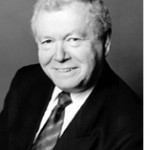By Rabbi Dow Marmur

JERUSALEM–A third intifada is on its way; perhaps it’s already here. The death toll is growing and more is likely to come. Israelis and Palestinians blame each other but neither side is prepared to look at itself and take its share of the responsibility. As the one cannot change the other, only self-scrutiny in place of self-righteousness – repentance in the full sense of the word – can bring about healing or at least prevent escalation.
Here’re two aspects of possible Israeli soul-searching.
- Assaf Sharon teaches philosophy at Tel Aviv University. His lengthy article in a recent issue of the New York Review of Books about militants in the Revisionist movement, the precursor to today’s Likud party led by Binyamin Netanyahu, is called, The Jewish Terrorists. In it he refers to the late Benzion Netanyahu – the father of, and great influence on, Israel’s current prime minister – as a “revisionist ideologue” and an “Islamophobe who supported pre-state terrorism and opposed any agreement with Arabs, even the peace accord with Egypt.”
Sharon concludes his article with a reminder: “Understanding the ideological roots of Israel’s current leaders is indispensible if they are ever to be successfully challenged and replaced.”
2. Sharon could have added that the mix that constitutes the current government of Israel also includes Messianic Zionists, members of Habayit Hayehudi who believe that the whole of the Land of Israel on both sides of the so-called Green Line belongs to Jews and Jews alone. Though they didn’t start the settlements in the West Bank, they’ve become the settlements’ principle advocates and many of their supporters populate them.
In view of the twin ideologies of Likud and Habayit Hayehudi and despite the rhetoric about wanting peace, it’s difficult to see how they could accept a two-state solution that would involve ceding land and dismantling settlements.
Israeli self-scrutiny must include these considerations and lead to different politics to be reflected in a very different kind of government. There’s very little to suggest that, in view of Israel’s present political climate, that’s in the cards.
This doesn’t mean that a drastic change of direction in Israeli politics would automatically lead to peace, because there’s nothing to suggest that the Palestinian political leaders are more ready for it than their Israeli counterparts. As indicated above, neither side is going to change the other; both sides can change themselves. There’s no evidence of it as Israelis and Palestinians engage in actions that enrage each other.
The result on one side is continued settlement expansion, by all accounts not only on public land but also on private property that may belong to Palestinians. On the other side is exploitation of Palestinians’ frustration by motivating young people – even children – to cause death and damage to innocent Israelis, and to themselves.
Sadly, both sides have supporters who don’t have to pay the price yet want to share if not in the glory then at least in the indignation. Thus Muslims around the world mouth words of hatred of Israel but do very little to help their Palestinian sisters and brothers to sue for peace and lead normal lives. And Jews in the Diaspora know how to show their anger against the lies and the venom that the Palestinians are spreading but fail to have a moderating influence on Israeli responses. A vicious and deadly circle.
*
Rabbi Marmur is spiritual leader emeritus of Holy Blossom Temple in Toronto. He may be contacted via dow.marmur@sdjewishworld.com